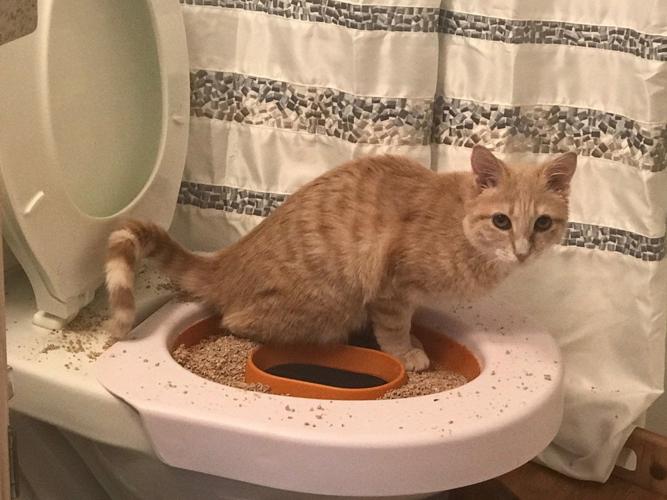Dangers of Disposing Cat Poop in Your Toilet - Preventive Steps
Dangers of Disposing Cat Poop in Your Toilet - Preventive Steps
Blog Article
What are your ideas on Don’t flush cat feces down the toilet?

Intro
As feline proprietors, it's essential to be mindful of just how we deal with our feline buddies' waste. While it might appear hassle-free to flush feline poop down the commode, this technique can have damaging consequences for both the setting and human wellness.
Alternatives to Flushing
Thankfully, there are more secure and more responsible methods to throw away pet cat poop. Take into consideration the following alternatives:
1. Scoop and Dispose in Trash
One of the most common technique of throwing away pet cat poop is to scoop it right into an eco-friendly bag and toss it in the garbage. Be sure to use a dedicated litter inside story and throw away the waste without delay.
2. Use Biodegradable Litter
Go with biodegradable cat clutter made from products such as corn or wheat. These clutters are eco-friendly and can be securely disposed of in the trash.
3. Bury in the Yard
If you have a backyard, consider hiding pet cat waste in a marked location far from veggie yards and water resources. Make certain to dig deep enough to prevent contamination of groundwater.
4. Install a Pet Waste Disposal System
Invest in an animal waste disposal system particularly developed for cat waste. These systems use enzymes to break down the waste, reducing smell and ecological effect.
Health and wellness Risks
In addition to environmental problems, purging cat waste can also posture health and wellness risks to human beings. Cat feces may have Toxoplasma gondii, a bloodsucker that can cause toxoplasmosis-- a potentially extreme health problem, particularly for pregnant females and individuals with weakened body immune systems.
Environmental Impact
Flushing cat poop presents harmful pathogens and parasites right into the supply of water, posing a substantial danger to aquatic environments. These impurities can negatively influence aquatic life and concession water quality.
Final thought
Responsible animal ownership expands past supplying food and sanctuary-- it additionally includes correct waste administration. By refraining from flushing cat poop down the bathroom and choosing different disposal techniques, we can reduce our ecological footprint and secure human health.
Why You Should Never Flush Cat Poop Down the Toilet
A rose by any other name might smell as sweet, but not all poop is created equal. Toilets, and our sewage systems, are designed for human excrement, not animal waste. It might seem like it couldn’t hurt to toss cat feces into the loo, but it’s not a good idea to flush cat poop in the toilet.
First and foremost, assuming your cat uses a litter box, any waste is going to have litter on it. And even the smallest amount of litter can wreak havoc on plumbing.
Over time, small amounts build up, filling up your septic system. Most litter sold today is clumping; it is made from a type of clay that hardens when it gets wet. Ever tried to scrape old clumps from the bottom of a litter box? You know just how cement-hard it can get!
Now imagine just a small clump of that stuck in your pipes. A simple de-clogger like Drano isn’t going to cut it. And that means it’s going to cost you big time to fix it.
Parasitic Contamination
Believe it or not, your healthy kitty may be harboring a nasty parasite. Only cats excrete Toxoplasma in their feces. Yet it rarely causes serious health issues in the cats that are infected. Most people will be fine too if infected. Only pregnant women and people with compromised immune systems are at risk. (If you’ve ever heard how women who are expecting are excused from litter cleaning duty, Toxoplasma is why.)
But other animals may have a problem if infected with the parasite. And human water treatment systems aren’t designed to handle it. As a result, the systems don’t remove the parasite before discharging wastewater into local waterways. Fish, shellfish, and other marine life — otters in particular — are susceptible to toxoplasma. If exposed, most will end up with brain damage and many will die.
Depending on the species of fish, they may end up on someone’s fish hook and, ultimately on someone’s dinner plate. If that someone has a chronic illness, they’re at risk.
Skip the Toilet Training
We know there are folks out there who like to toilet train their cats. And we give them props, it takes a lot of work. But thanks to the toxoplasma, it’s not a good idea.

We hope you liked our topic about How to Dispose of Cat Poop and Litter Without Plastic Bags. Thank you so much for taking time to read through our article post. Do you know another person who is excited about the niche? Take a moment to promote it. Thanks a bunch for your time. Visit us again soon.
Or Book Technician Here Report this page